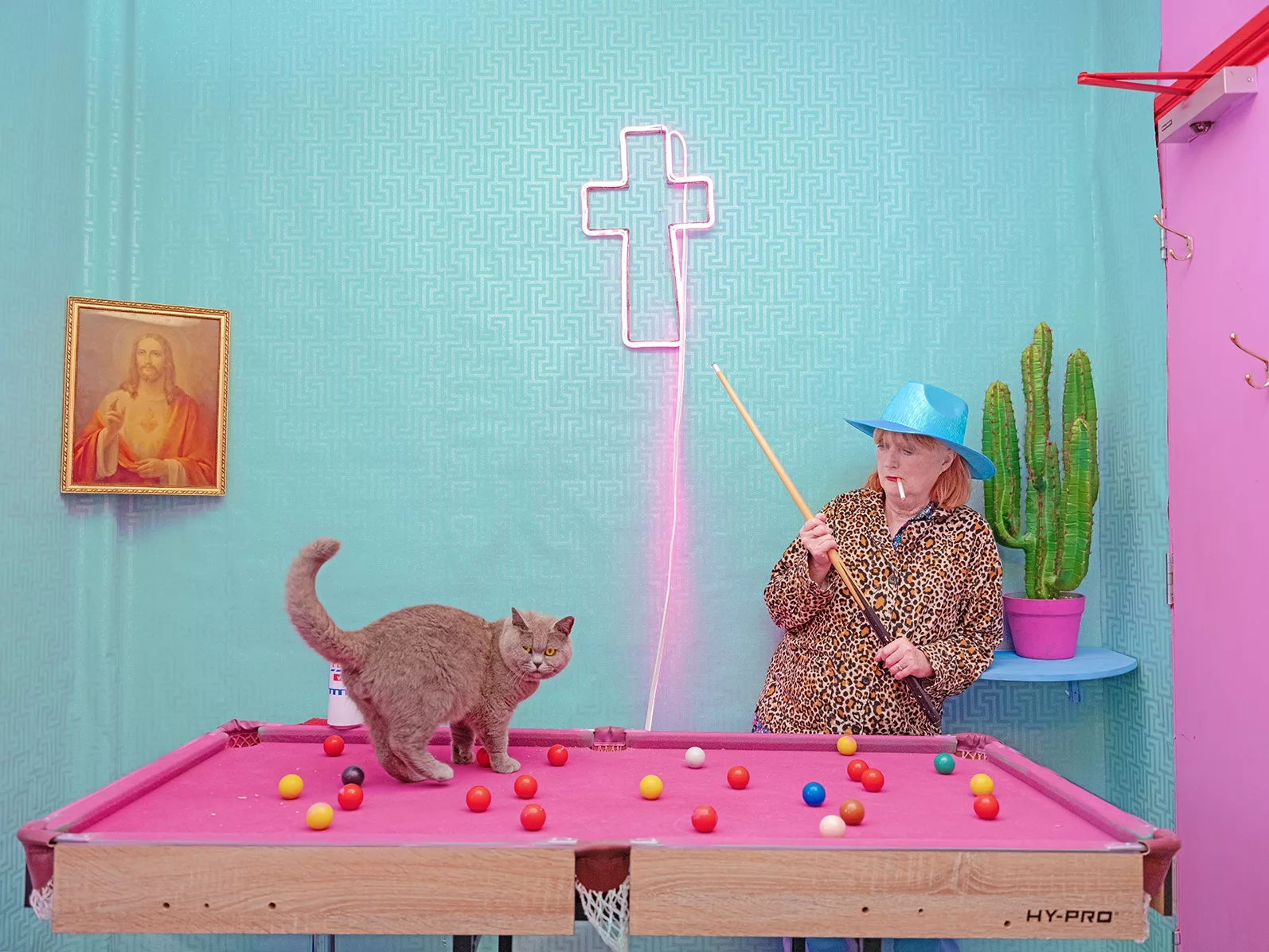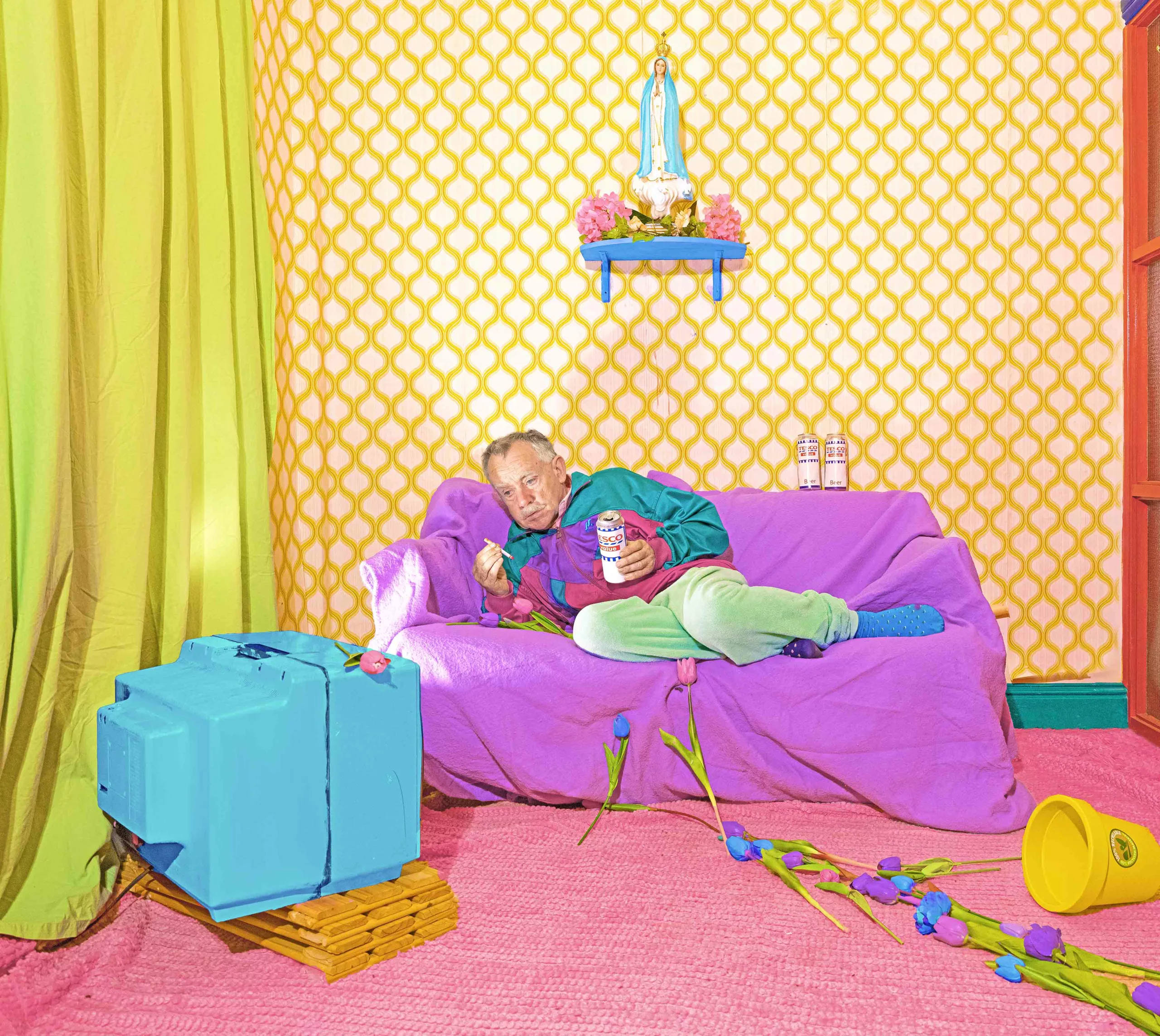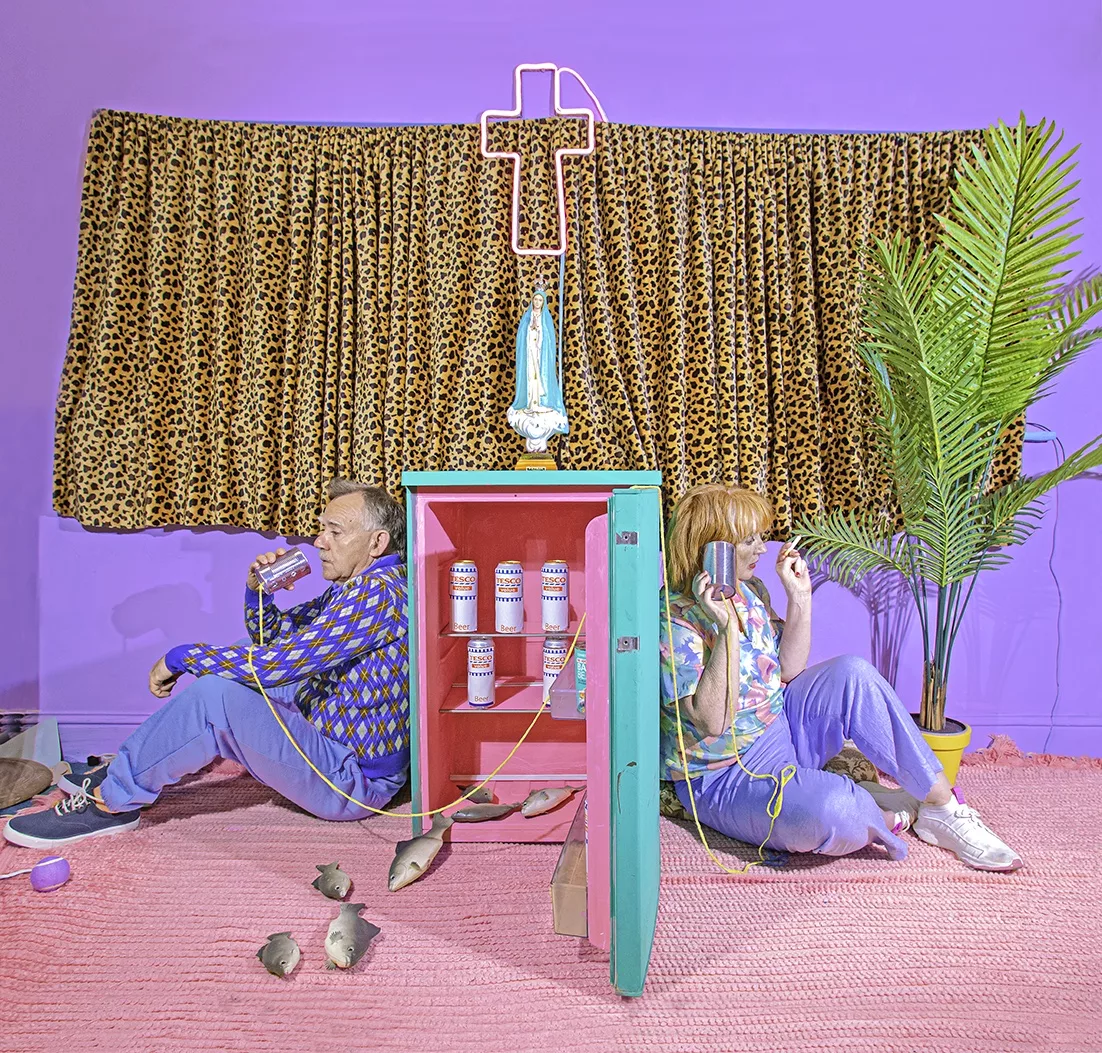
Galway International Arts Festival welcomes Enda Burke’s Far Away & Close to Home to Outset Gallery this year in a unique showcase of the Galway artist’s bold visual language.
Recently awarded the International BarTur Photo Prize, Burke’s work has been published in various media from The Guardian to Rolling Stone Magazine. Here, University of Galway Editorial Manager, Meadhbh McNutt contextualises this multidisciplinary body of work in a short creative essay.
Kitsch, retro, theatrical, oddball—popular adjectives among the international coverage of Enda Burke’s photography since the launch of Homebound With My Parents. Like many Irish artists, Enda’s photography created its first big waves abroad. International audiences lap up the surreal narratives and eccentric props, while domestic viewers enjoy the humorous resemblances—however exaggerated—to their granny’s sitting room, or their aunty’s Padre Pio obsession. In those moments of nostalgia for 1980s Irish houses, we could easily overlook the variety of cultural references to different decades, that point to a psychological space as much as a domestic one. The technicolour sets allow us to look back on a collage of references from Ireland‘s recent past. They capture that period where parochialism merged clumsily with American consumerism. A time which, in the wake of globalisation, seems distant and naive.

Enda tirelessly transforms domestic spaces for each new composition, and Christian icons are often the guardians of these rooms. As humans, we cling stubbornly to our icons. When Christianity originally came to Ireland, pagan festivals and deities were Christianised to encourage the transition from one belief system to another. We simply couldn’t let the likes of Bríd go. As Bernadette Devlin McAliskey once said, “Doesn’t matter whether we’re Catholics or Protestants or whatever—it’s in our culture to look for salvation from on high, and to look to god, or some icon, or some big person, or some Bernadette, to gallop to the rescue.”
An icon can signify many things; a spiritual ideal, a talisman, a spark of hope. In Enda’s images, statues of the Virgin Mary fraternise with Elvis and Hulk Hogan, and a placid portrait of Jesus Christ hides behind the face of a gold plated watch. Recent collaborations with motion graphic artist Dara Greaney in particular add a hint of eeriness to the Father Ted undertones of Enda’s humour; an entrancing combination.

The Catholic Church, ever adept at marketing, has always been equipped with cool “stuff”. As a child of the Celtic Tiger, I witnessed the glitziest of communions, where loved ones would hand out disarmingly sweet medals alongside communion cash. Enda’s parents wed on the day of Pope John Paul II’s visit to Ireland in 1979: a rock star moment. The Scottish comedian Fern Brady summed up this cultural legacy when she said, “If you’re a boy in my town, you have one of three names. You’re called John, Paul—or John Paul.” Enda’s work brings levity and humour to the ambivalence that many of us feel towards these memories.
It would be remiss not to mention Enda’s role as set designer, particularly as his mise en scène makes its way into the physical gallery. I often run into Enda in the street carrying a vintage fan or cuts of patterned fabric. On the last day of a recent holiday with friends, he got up early to buy a huge statue of our Lady of Fatima from the local flea market. He is not only a set designer, but a set designer in his own family home. His own craft is heavily influenced by his father’s love of narrative and his mother’s embrace of colour and pattern. Without the trust and intimacy between the artist and his parents in particular, Far Away & Close to Home would emit an entirely different atmosphere. This domestic setting, and the artist’s close relationships with family and friends, are what makes the images possible.
While many of these images bring to mind the doll-house aesthetic of Wes Anderson, I also think of photographers like Larry Sultan who peer closely at the family home. There is a moment in Sultan’s Pictures From Home where the artist is photographing his sleeping mother, and realises that she is in fact performing sleep for him. They are ‘co-conspirators’ in the performance of family life, and the production of the image. Enda’s subjects, whether reluctant or enthusiastic, are also co-conspirators. They feed the cultural projections of their audience, at times carrying stereotypes through to absurd conclusions.
In these images, the familiar living figures of ‘mam’ and ‘dad’ are flattened and hyperbolic. Now archetypal, they join the patchwork of icons that litter the walls.